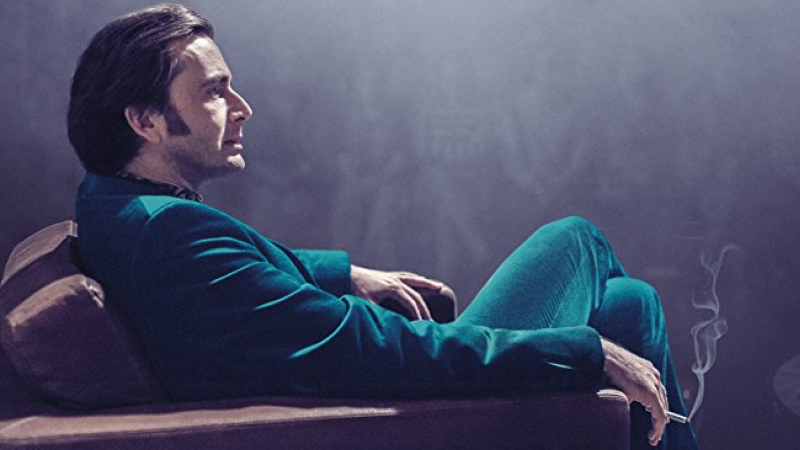Mad To Be Normal is a biopic that is nowhere near as radical as its subject: ’60s anti-psychiatry shrink R. D. Laing, “the acid Marxist” who advocated treating patients holistically, without medication or surgery.
David Tennant is mesmerizing as the soft-spoken guru, wandering the corridors as the schizophrenic whisperer, intermittently capable of the miraculous: like bringing a non-communicative patient out of her shell through a hippy laying on of hands and the prospect of pizza.
When not giving seminars, to an awed student population – we’re first introduced to his back, a rock star of the zeitgeist outfitted in red velvet – he ran a community centre out of Kingsley Hall in East London, a safe haven where the mentally ill were allowed to wander freely.
More than bristling at his lack of professionalism, the establishment, are concerned by Laing’s live-and-let-live approach, his benign non-treatment. Their own methods, like electroshock therapy, are inhumane and primitive; even if performed with kindness.
The suggestion that Laing is, in his own way, running just another experiment – he leaves patients to their own devices and basically guilts the mumbling, traumatized Sydney (Michael Gambon) into trying LSD – is left unexplored, as is his relevance to the culture at large.
The world outside is washed out and hostile; the Swinging Sixties culture present only in the music of the decade. Laing too is not without his demons: he’s a borderline alcoholic who spends his days wading through others’ emotional shit, indifferent to his wife Angie (Elisabeth Moss).
Her own compassion is prayed upon by the lycanthropic Donald (Gabriel Byrne) – resident, occasional drinking buddy, pigeon fancier turned fox in hen-house. His gentle, sociable exterior gives way to misogynistic asides and an apocalyptic frame of mind.
Writer-director Robert Mullan is more interested in exploring, as Laing puts it this “household of people in different states of mind”; his camera roaming casually through the warm, hazy corridors Kingsley Hall like a contemporary, his framing casual and intimate.
A line about world leaders with the atom bomb at their disposal being more estranged from reality than the clinically insane has the ring of truth, but the film’s remarkable empathy does not always equal insight.
